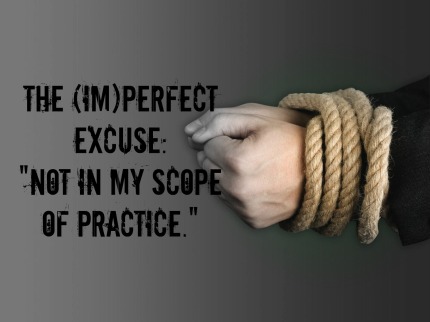This past week I was privileged to spend a day at an incredibly rural hospital in the Old Transkei, South Africa, where I hope to complete a rural Family Medicine rotation early next year. I have heard a lot about this groundbreaking hospital and even wanted to do an elective there, but they are so popular that I could not get a space there before.
This hospital has gone from a struggling place with only two medical doctors to a beacon of hope in the area. Many patients who aren’t even in their catchment area travel there, because they know how good the service will be.
The improvement was not because the government suddenly gave them a lot more money, or because people suddenly did not get so sick, or because expensive drugs suddenly became available, but because the healthcare professionals decided to take things into their own hands.
I do not know the whole story, because I am sure an entire book could be written about it, but THEY started looking for donations, THEY started getting mobile clinics involved, THEY started outreach projects in the local communities, THEY started an elective program.
Do you know that in 2006, there were no doctors quarters there, and so the doctors lived in the maternity ward… literally?
The incredible thing I realised in one short day there was that the phrase “not in my scope of practice” is not tolerated at this hospital.
The first time I heard this phrase I was a second year student working at our student-run clinic. I was taking vitals of a patient, and a senior student wanted to teach a junior dietetics student – who had nothing to do at the time – how to measure blood pressure. He was about to begin when a senior dietetics students noticed them and demanded that he cease and desist, as taking blood pressure was “not in a dietitian’s scope of practice.” Bear in mind that the medical student did not want to make her do scut work, he was simply trying to teach her something worthwhile while she waited for a referral from one of us.
The phrase became more popular. At my training hospital, nurses love telling medical students that they cannot help us with something because it is “not in their scope of practice”. In third year I was admonished by a doctor for bringing a patient a bedpan, because that was not in MY scope of practice. (It is not, and I hate it when nurses ignore a patient’s plea for a bedpan, but it was either that or having to call the nurses to clean my patient up.)
But at this hospital, I saw nurses and doctors and OTs do what was needed, not what they knew as their job descriptions. For example, the hospital does not have a permanent physiotherapist or psychologist on board, so the Occupational Therapists do a lot of the missing duties, including chest physio and trauma debriefing. And that is just the way it is.

I understand that this opens the risk for litigation, but nobody is saying the nurses should perform appendectomies, or that OTs should prescribe antihypertensives. Furthermore, I often find that most people who use the “scope of practice” excuse have little idea what IS in their actual scope of practice, and are using the phrase as a fancier substitute for “job description”. For example, taking and plotting a child’s measurements is usually in the job description of a Paediatric admissions nurse, but it certainly isn’t BEYOND the scope of practice of a physician!
When people are doing their jobs and looking to make a healthcare system work for everyone, there are more important things to harp on than a scope of practice, and I think that is one of the biggest reasons why some hospitals flourish while others simply plod along.


I stand to applaud you.. this is what I love to hear… someone not scared to do the job at hand…
It is a little scary, but hiding under my bed is a little boring 🙂
It is wonderful to know there are places like this in our country. If not only more hospitals, but more schools, churches, and even for-profit businesses were to follow this philosophy, can you just imagine what an amazing country we will become? I hope you get your rotation there.
Thank you, I hope so too. It would be great if, as you say, more schools and such followed the same principle.
We need more people like you to make this beautiful country work!
That’s flattering – thank you. I’m sure there are many many people who want to make our country great, maybe they just need some encouragement to know that it’s possible.
It’s awesome that people work so hard for their patients. But some scope of practice things are there for a reason. An untrained person doing something like chest Physio can be really dangerous.
Thanks Leigh. I don’t know much about physio, but the way I understood it was that the physiotherapists had taught the OTs basics like supervising PEEP and helping patients cough efficiently for the days when the physiotherapists are on duty at other clinics and hospitals, and the physios then do the hardcore stuff on their duty days at this specific hospital. I think it ended up being a pro/con decision, because as it was explained to me, there are certain cases where weekly physio just is not enough.